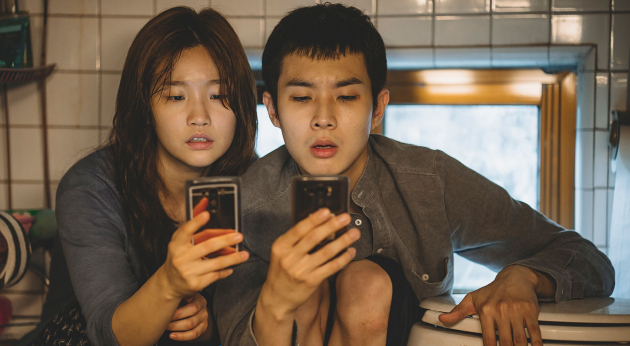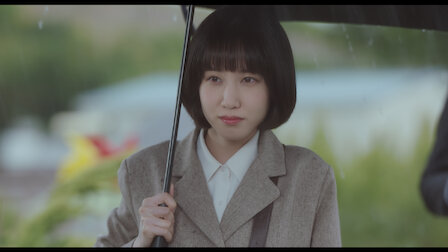During lockdown many people caught the baking bug, while some took up a craft or binged on novels. I caught Hallyu – which translates as “the Korean Wave”.
Movies like Parasite, TV series such as Squid Game and food like Korean fried chicken have propelled Korean culture to the attention of many in the West, even white Anglo-Celts like me.
There are several reasons for my interest in Korean culture. For a start, South Korea produces great music – both classical and K-pop. Some of the most popular groups in the world, like BTS and Blackpink, are from Korea. The Hallyu bug manifested itself in watching Korean dramas, which have surged in popularity thanks to billions of dollars in backing from Netflix.
For the uninitiated, K-dramas are long, complex and soaked in Korean culture. They can be romantic, like Crash Landing on You (above), or ultra-violent, like Squid Game. Each series usually contains 16 episodes of an hour or more, and that’s a significant investment of time. Of course, you also have to read subtitles.

Above: Academy award winner, Parasite
South Korean movies and TV are high quality with the kind of dialogue you don’t get in Western productions. But amid the sumptuous visuals, you can also discern deep problems. I wouldn’t dare to judge a country’s culture simply through what I see on TV, so I compared notes with the Rev Kevin Kim, senior minister at Strathfield and Enfield Anglican Church.
We started with the most successful K-drama, Squid Game, about a fight to the death involving a children’s game.
“I think it was quite sensational how the rest of the world took on board this whole Squid Game stuff,” he says. “But if you watch it, you realise that, although it’s a satire, it is actually a fairly accurate description of how people operate in Korea at the moment.”
Pastor Kim is not a fan of K-dramas, partly because of their addictive nature but also some of the themes that are explored.
“It pains me to see – and I can say this because I’m a Korean – it’s a very superficial kind of culture,” he says. “People often are judged by how they dress and what sort of cars they drive, rather than really engaging with understanding people, listening to each other and exercising grace towards each other.
“It is a very, very competitive, cut-throat kind of environment. Generally speaking, Korean society, I think, is becoming – dare I say – disintegrated, because the family is falling apart. The suicide rate is skyrocketing. The birth rate is plummeting. And it’s covered up by the economic success. That’s pretty toxic.”
While watching, I found myself wondering about South Korean spirituality. Out of a population of 52 million, 23 per cent of Koreans are Buddhist. Protestant Christians make up about 18 per cent of the population, with those who follow traditional folk beliefs or shamanism at 15 per cent. Compare this with North Korea, where the persecution of Christians is intense and often deadly.
Do K-dramas represent Korean spirituality? Yes and no, says Pastor Kim. “I’ve seen a number of K-dramas where it depicts spiritual worlds and some spiritual themes. So, I know that Korean people – although they have become very, very secular – still remain very, very spiritual in many ways. Ancestor worship and that sort of stuff is still fairly rampant. But it is combined with really explosive economic growth, which turns people into more economy-obsessed. I really think a lot of the K-dramas reflect that sort of mindset.”
Despite the number of Protestants in South Korea, Christians and churches don’t often feature favourably. “I think it’s in Korean people’s psyche that there’s more to this world than just a material world,” Pastor Kim says. “The unfortunate side is that the churches in Korea haven’t done any favours for themselves with their greed, their worldliness, and also moral failure of the leaders and so on. So, the church is not in the good books with people.
“Although, for the last 30 or 40 years, Christianity has become one of the dominant religions in Korean society, all I’m hearing is that young people are leaving churches in droves and there’s a sort of anti-Christian sentiment flowing right through Korea.”

Of course, K-dramas vary widely, from romance to crime to zombies(!) If you want to check out the phenomenon, you could watch Crash Landing on You – a romantic drama set against the background of the North-South divide. There’s also Extraordinary Attorney Woo, with a great performance by Park Eun-bin as an autistic savant lawyer (above). Both are on Netflix.
The dramas often move slowly, so be prepared to concentrate on the subtitles. Of course, like all Netflix shows, you have to beware of binge-watching. The boss of Netflix once famously said the channel’s real competition is sleep!
As a Westerner, I’m glad I crash-landed on Hallyu because not only has it provided interesting viewing, it has also given me some understanding of North Asia and common ground with Koreans I meet. I hope the conversation can go beyond K-dramas to the one many Koreans worship – Yesu.
Pray for Korea
- that church leadership would go back to the Scriptures
- that theological colleges in Korea would be theologically driven and produce faithful pastors
- for persecuted Christians in North Korea
- for the spread of the gospel among Koreans in Australia
- that Christians would not be caught up in materialism and careerism






















